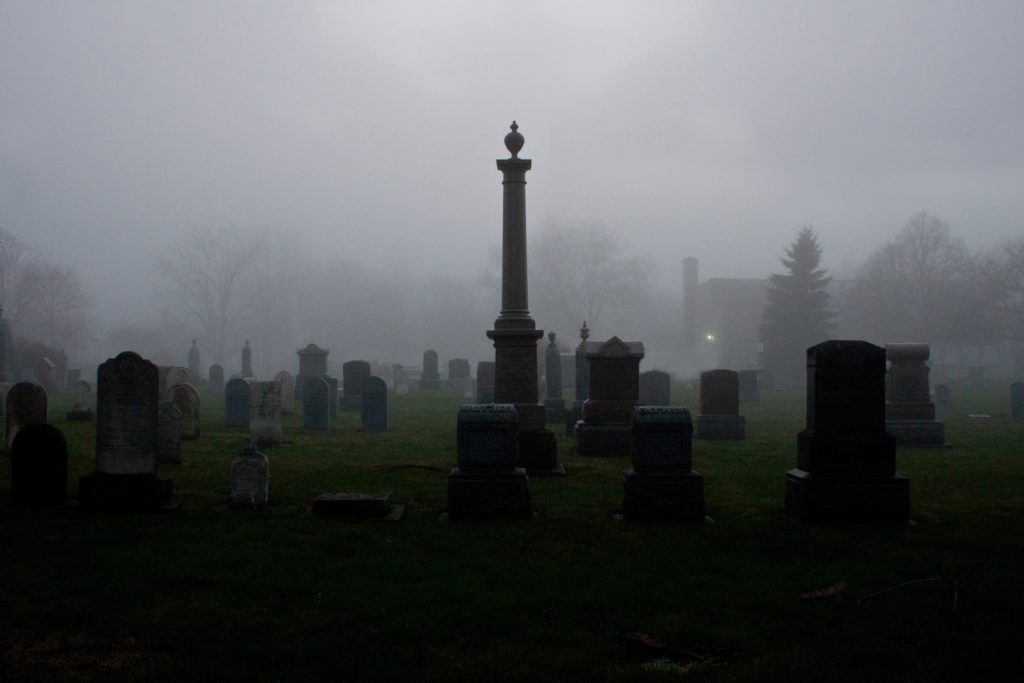
As I write this, pretty much the whole world is living a restricted life due to a pandemic of COVID-19. There’s a raging disagreement about how serious it is and what measures, if any, should be taken to combat it. I’m not going to express an opinion on any of that, because I have no expertise in the field, and there are already so many other people without expertise shouting their opinions from the housetops that it’s getting increasingly difficult to find the useful information coming from actual experts, and I don’t want to add to the chaos.
Although I know several people who have been infected, no one I know has died. Yet. But with a global death toll in the millions and still climbing (I know, that’s disputed, too), lots of people have lost one or more loved ones and are dealing right now with the natural disorder of death, and the rest of us are under its shadow—as we would be even if there were no virus (Heb 9.27).
It’s worthwhile, then, to think about death and how we respond to it.
I’ve referred to death just above as a “natural disorder.” Let me explain what I mean by that.
Lots of biblical scholars have noted that humans were created in the image of God, which clearly includes dominion over the earth and its contents (Gn 1.26-30). As we all know, Adam’s choice to reject God’s will brought on him—and us—a curse that included resistance from the ground (Gn 3.17-19). As we attempt to exercise dominion over the earth, our subjects now exercise perpetual rebellion against our leadership. Every tiny weed in our carefully tended gardens is a token of that rebellion. And the greatest evidence of it is that for every one of us, eventually the ground overthrows us, defeats us, and our lifeless bodies are given to its cold and unloving embrace, eventually to join it in its rebellion as our corpses become dust, tiny foot-soldiers in its ongoing rebellion.
Many have made this observation over the years, but I’m particularly thinking about it these days because I’ve sat on a dissertation committee for the past several months, and the newly minted doctor has reasserted these points in his fine work.
So death is not the way things should be. It’s the rubble, the burning tires, the rolls of barbed wire in the streets after days of rioting; it’s a deep and devastating departure from civil order, the way things ought to be.
How, then, do we respond when death inevitably comes to our households and to the households of those we care about?
Do we “rage, rage against the dying of the light,” impotent but determined to lodge our protest, effete though it is? Do we accede resignedly to the reality and just try to be as happy and comfortable as we can until the inevitable comes?
What does it look like to exercise dominion when your subjects are winning every act of rebellion? How do you take charge when the enemy is overwhelming and you know you can’t prevent your own defeat?
What do we do now?
I’d like to take a few posts to consider the biblical material that applies to this conundrum. (And no, I’m not going to use Romans 8.28—though we ought not to cast it aside just because people misuse it or use it tritely or sophomorically.) I hope to suggest a path forward for the bereaved, one that’s both realistic and constructive, and one that doesn’t rely on fairies at the bottom of the well, one that works not just because we can believe anything if we try hard enough, but because it’s true—it works with the design and purpose of the universe to restore civil order even as the acrid smell of burning tires lingers in the air and the rubble seems utterly chaotic.
We’ll start next time right where we ought to: at the beginning.
Part 2: Preparing | Part 3: The God of All Comfort | Part 4: Life (from Death) in the Body | Part 5: Joyful Grief | Part 6: Pain with a Purpose | Part 7: Closing Thoughts
Photo by Scott Rodgerson on Unsplash

Leave a reply. Keep it clean.